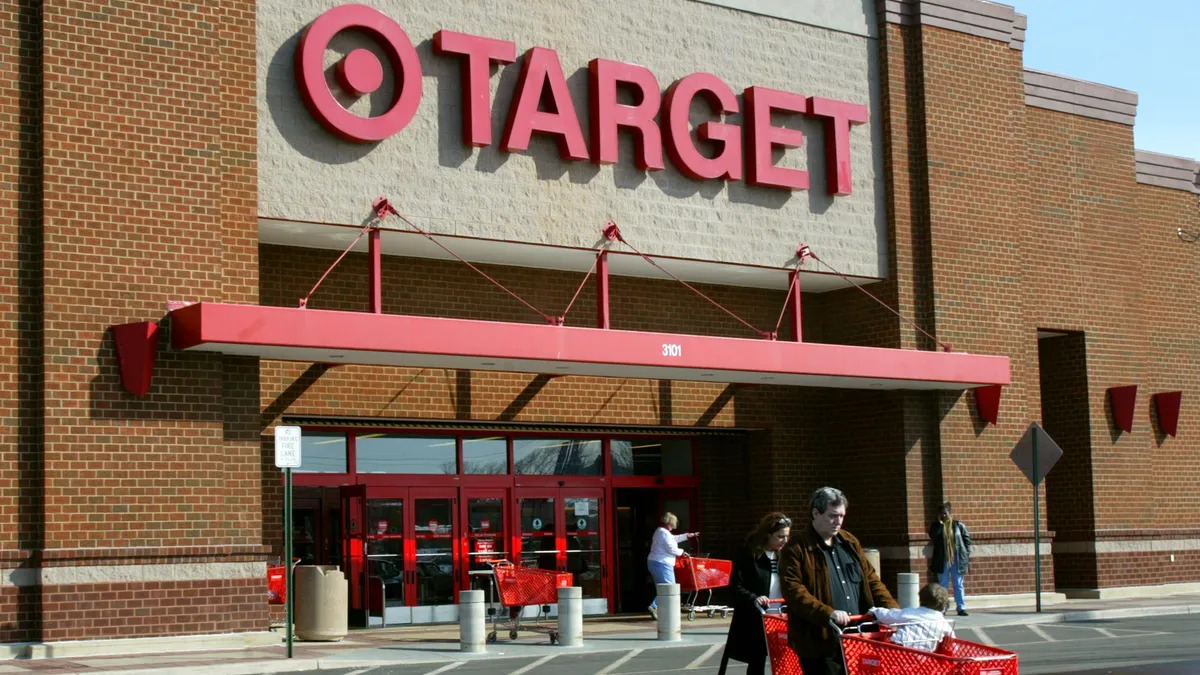Dive Brief:
- Target and Starbucks earned perfect scores — both receiving an “A+” — on a racial and gender pay scorecard that ranked the largest 100 companies in the United States on pay gap disclosure and performance.
- The March 12 report, released on Equal Pay Day, was compiled by ESG-focused investment firm Arjuna Capital in conjunction with shareholder advocacy group Proxy Impact and human capital research firm DiversIQ.
- While several companies improved their scores — hotel chain Marriott and grocery retailer Kroger both jumped to a “B” score, up from an “F” last year, mostly due to commitments to enhance their quantitative pay gap reporting — several also took a dip in rankings. Nike scored a “C,” grade, down from a “B” last year, due to a lack of transparency on what facets of compensation are included in its pay equity analysis.
Dive Insight:
The scorecard, the seventh annual release from Arjuna Capital, surveyed over 128 companies across seven sectors: consumer discretionary and staples, financials and real estate investment trusts, information technology, health care, communication services, industrials and materials, and energy and utilities.
According to the activist investor group, this year’s scorecard is the most comprehensive pay gap disclosure review yet, as it “captures the tremendous momentum in pay gap disclosures” from 2016 to 2024. Arjuna Capital said the latest edition marked a 12-fold increase in the number of companies that have disclosed data on quantitative pay gaps.
“Companies are embracing a more transparent, comprehensive approach to pay gap reporting — a shift that goes beyond lip service to create real and lasting change,” Natasha Lamb, Arjuna Capital’s chief investment officer and lead author of the report, said in a press release.
Lamb said companies that have equal pay ambitions are “capitalizing on key performance benefits,” such as gaining a competitive edge in recruiting and retaining top talent, and improving diversity across their leadership roles.
The consumer and financial sectors had the highest number of disclosures, with 56% and 68% of companies disclosing pay gap data, respectively. By contrast, only 20% of companies in the energy and utilities sector disclosed their data. Consumers also led the way with the highest scores with Target earning an “A+” for the second year in a row, while all energy and utilities companies received an “F.”
Arjuna Capital has filed 175 shareholder resolutions to the boards of at least 93 companies regarding their racial and gender pay gaps over the last 10 years. From this, a total of 79 resolutions were withdrawn for company agreements to improve disclosure practices and policies, in addition to several shareholder dialogues taking place without the need for a shareholder resolution.
In 2024, 76 resolutions have been voted on with six omitted, while 14 more are pending a vote — giving this year the potential to set a record for number of votes on the topic, Arjuna Capital said.
Arjuna Capital currently faces a lawsuit from ExxonMobil — which earned an “F” on the scorecard — for requesting the natural gas giant to ramp up its greenhouse gas emissions reduction efforts for scope 1 and scope 2 and set a scope 3 target. Though the activist investor withdrew the proposal it filed with Follow This last month, the duo continues to face legal action from Exxon.












